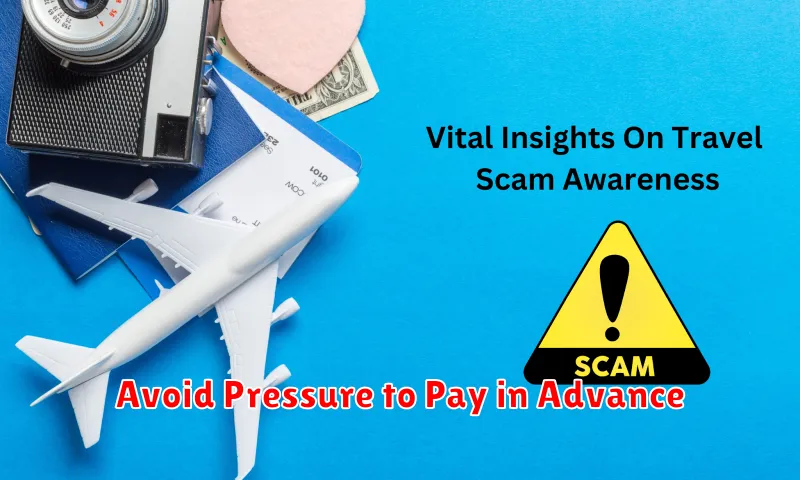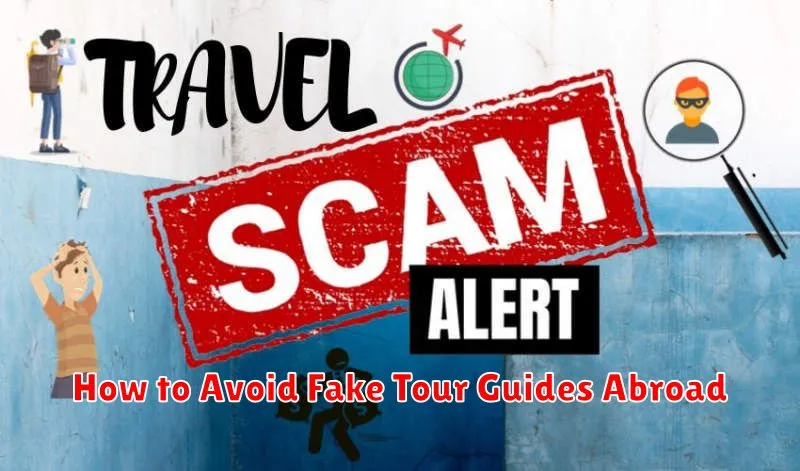Planning an exciting trip abroad? Ensuring your safety and maximizing your experience are paramount. One crucial aspect of a successful trip is avoiding fake tour guides. Fake tour guides can ruin your trip, leading to scams, inflated prices, misinformation, and even dangerous situations. This article will provide essential tips on how to identify and avoid fake tour guides abroad, ensuring a smooth and enriching travel experience. Learning how to identify legitimate tour operators and certified guides is a crucial step in planning your trip.
From understanding local regulations regarding tour guides to recognizing red flags, we’ll equip you with the knowledge necessary to make informed decisions. Protecting yourself from tour guide scams is not just about saving money, it’s about safeguarding your well-being and ensuring your trip is memorable for the right reasons. By following these guidelines, you can confidently navigate the world of tour guides abroad and enjoy an authentic and enriching cultural experience. Don’t let fake tour guides derail your adventure – learn how to spot them and protect yourself.
How Fake Guides Operate in Tourist Zones
Fake tour guides often congregate in popular tourist areas such as historical sites, museums, and transportation hubs. They approach travelers, sometimes aggressively, offering their services.
Their tactics often involve highlighting their supposed local expertise and offering “special access” or “discounted prices” to attractions. These offers are often too good to be true.
Once engaged, these fraudulent guides may lead tourists to overpriced shops, inferior restaurants, or demand exorbitant fees for their services midway through the tour. They may also provide inaccurate or misleading information about historical sites or cultural practices.
In some cases, fake guides might work in collaboration with vendors, receiving commissions for bringing in tourists. This further inflates the prices tourists end up paying for souvenirs or other goods.
They may also utilize distraction techniques to pickpocket unsuspecting tourists, taking advantage of moments when attention is diverted towards a monument or performance.
Book Through Reputable Platforms Only
One of the most effective ways to avoid encountering fake tour guides is to book your tours exclusively through well-established and reputable platforms. These platforms often have verification processes in place for tour operators and guides, providing an added layer of security. They also offer secure payment gateways and typically have customer review systems that can help you gauge the legitimacy and quality of a tour or guide.
Look for platforms with clear terms and conditions, transparent pricing, and established customer support channels. Compare prices and offerings across several reputable platforms before making a decision. Be wary of platforms with unusually low prices or those that pressure you to book immediately, as these can be red flags.
Ask for Official Identification

A crucial step in verifying a tour guide’s legitimacy is to request their official identification. Legitimate tour guides are typically required to be licensed and carry official identification issued by a relevant tourism authority or government body.
Do not hesitate to ask to see their credentials. Scrutinize the identification carefully. Look for a photograph, license number, issuing authority, and an expiration date. Verify that the name on the ID matches the name the guide has given you. If the guide seems hesitant or refuses to show you their ID, this should raise a major red flag.
In some regions, you may even be able to cross-reference the guide’s license number with a database or official website. If available, utilize these resources for added peace of mind. Remember, a genuine guide will understand and respect your request for verification.
Research Reviews and Agency Ratings
Before committing to a tour guide or agency, thoroughly research their reputation. Online reviews on platforms like TripAdvisor, Google Reviews, and specialized travel forums offer valuable insights from previous clients.
Pay close attention to reviews that mention the guide’s knowledge, communication skills, professionalism, and ability to handle unexpected situations. Be wary of overly positive reviews that seem generic or lack specific details. Look for a consistent pattern of positive feedback over time.
Check if the agency or guide is affiliated with reputable travel organizations or holds any relevant certifications. These affiliations can offer a degree of assurance regarding their standards and practices.
Agency ratings, often provided by travel websites and consumer protection agencies, can be a useful benchmark. These ratings typically consider factors such as customer satisfaction, reliability, and adherence to ethical guidelines. While not foolproof, they can help you identify potentially problematic agencies or guides.
Avoid Pressure to Pay in Advance

A reputable tour guide rarely demands full payment upfront. Be wary of guides who pressure you to pay the entire fee before the tour begins. This is a major red flag. Legitimate tour operators typically require a deposit to secure your spot, with the balance due upon completion of the service.
Insist on a written contract or confirmation outlining the tour details, including the total price, itinerary, and payment terms. This documentation provides a layer of protection should any disputes arise. A trustworthy guide will be happy to provide this.
Consider using a secure payment method such as a credit card. This offers some protection against fraud, as you can dispute charges if the tour doesn’t deliver as promised. Avoid paying in cash whenever possible, as it leaves no paper trail.
Travel with Groups When Unsure
One of the most effective ways to mitigate the risk of encountering fake tour guides is to travel with a group. Group travel often provides a layer of security and established itineraries through reputable agencies. These agencies typically vet their guides thoroughly, reducing the likelihood of encountering fraudulent operators.
Joining a group tour also offers the advantage of shared vigilance. Multiple sets of eyes and ears are more likely to spot suspicious activity or inconsistencies in a guide’s narrative or behavior. If something feels amiss, you have others to consult with and confirm your concerns.
Furthermore, group tours often operate on pre-arranged payment schedules. This minimizes the chances of being overcharged or pressured into paying for additional, unnecessary services. The established structure provides transparency and predictability, making it easier to identify potential scams.
Report Scams to Local Authorities
If you encounter a fraudulent tour guide during your travels, reporting the incident to the appropriate local authorities is a crucial step. This not only helps you potentially recover losses, but also protects future travelers from falling victim to the same scam. Reporting these incidents contributes valuable data that helps authorities track and address these issues more effectively.
The specific procedure for reporting will vary depending on your location. Often, you can report to the local police or a dedicated tourist police division. Documenting the scam is essential. Keep any receipts, contracts, or communication with the fraudulent guide. Note the date, time, location, and a detailed description of the incident, including the guide’s appearance and any identifying information.
Be prepared to provide as much evidence as possible to support your claim. This can significantly aid the investigation process. While recovering your funds is not guaranteed, reporting the incident can deter future fraudulent activities and help create a safer tourism environment.

